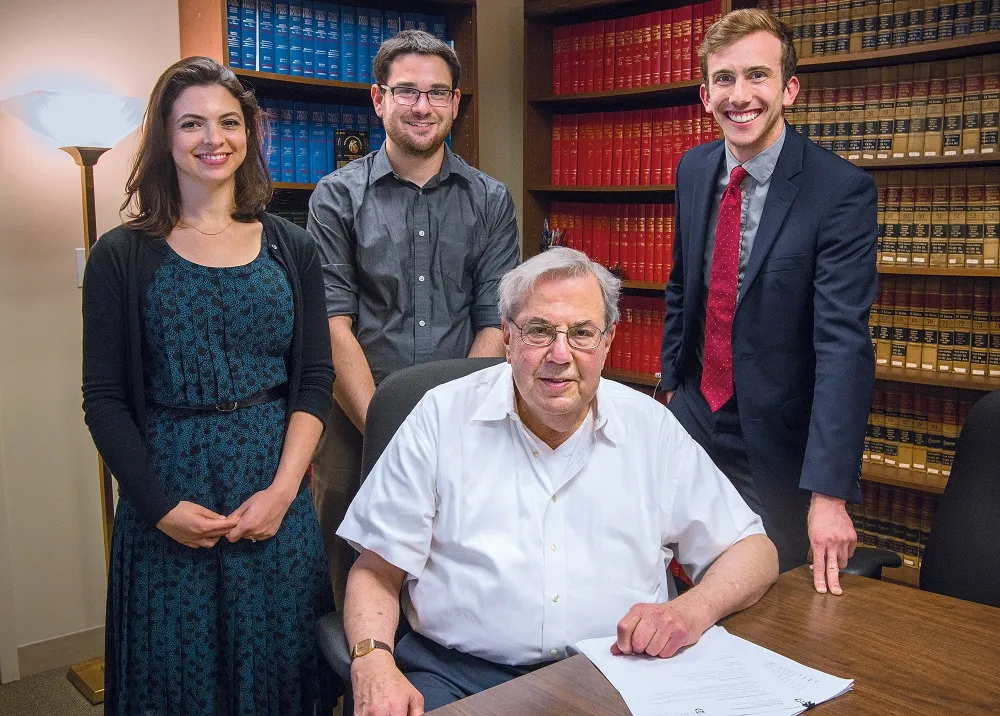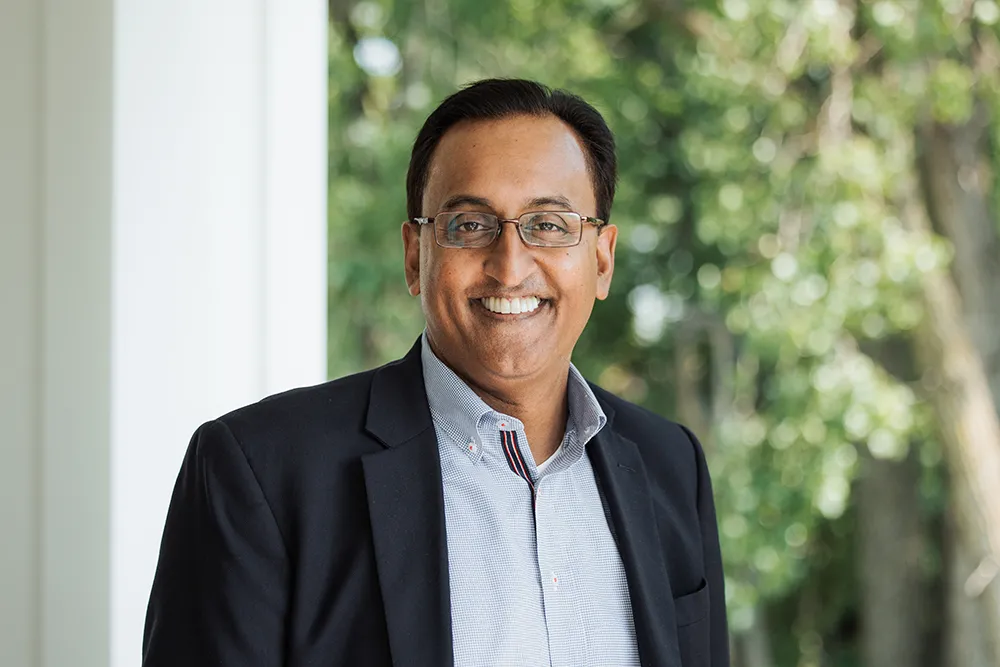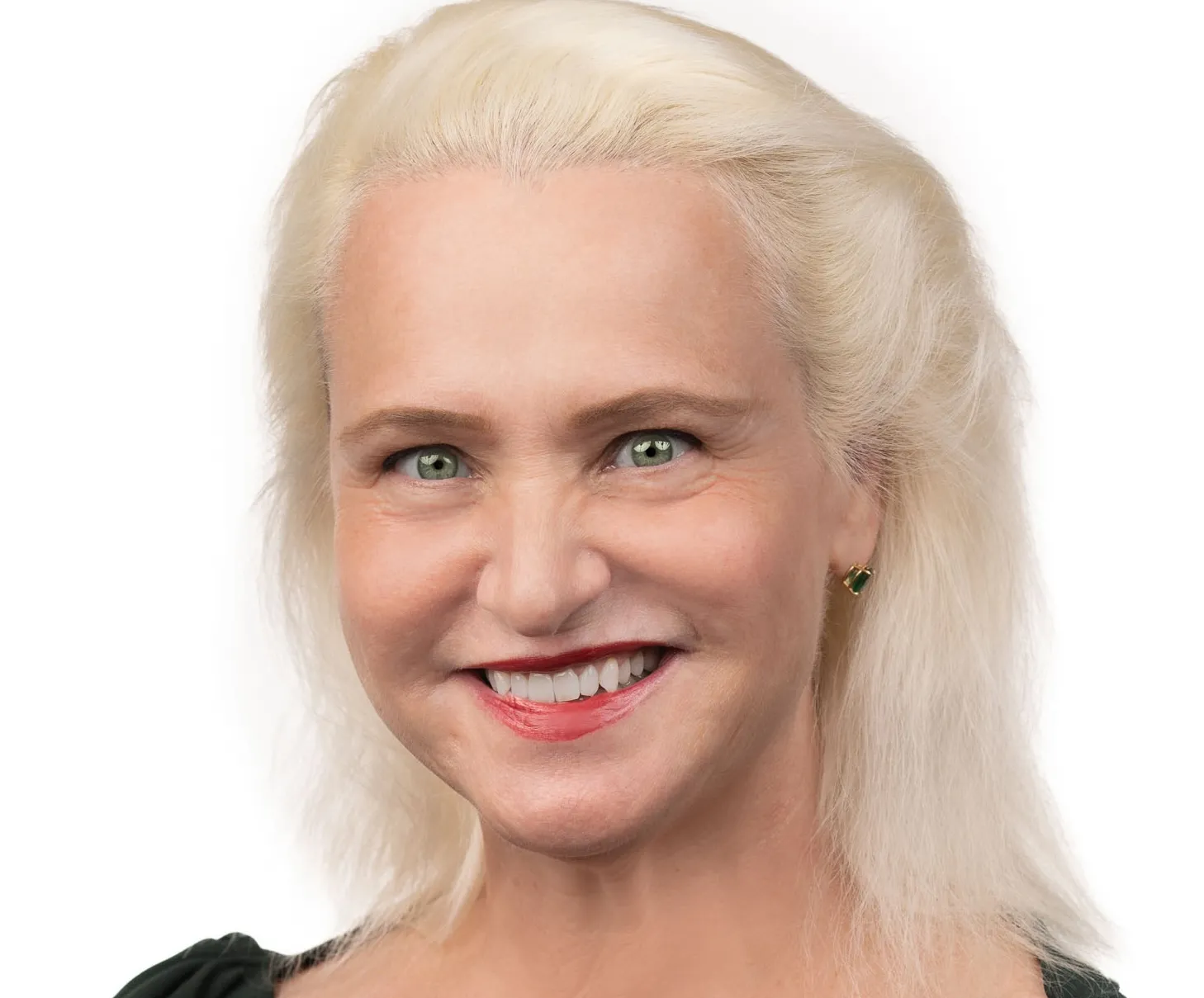The Flash of Discovery at the Beginning of a Career: A Visit with Nathaniel Grey, '57

In a book-lined law office conference room, Nathaniel Grey, ’57, trustee of the Bernard Heerey Family Foundation, leaned forward to look at the three recent Law School graduates before him.
Rachel Zemke, ’16, Brian Pflaum, ’16, and Anthony-Ray Sepulveda, ’15, had come to say thank you. Each had nurtured a deep commitment to public service while at the Law School—and each had launched a career, in part, because the Heerey Foundation had provided summer funding that opened a door to valuable public service experience.
“Without the stipend program there is absolutely no way I could have afforded to spend both summers doing [this] work, which is meaningful to my clients and which I love to do,” Zemke wrote in a letter that had been given to Grey before the meeting. She now works as an Equal Justice Works Fellow at LAF, the largest provider of legal aid in Cook County. “My experience was challenging, engaging, and incredibly rewarding. … I feel much more capable of being a public interest attorney.”
The graduates told Grey about the internships they’d pursued as Heerey Fellows—Zemke at Chicago Volunteer Legal Services, Sepulveda at the US Attorney’s Office for the District of Arizona, and Pflaum at the Office of the Cook County State’s Attorney—as well as their postgraduate jobs. Pflaum, one of seven recipients of the Law School’s 2016-17 Postgraduate Public Interest Fellowship program, is working at Equip for Equality; Sepulveda is an Assistant Inspector General for the Office of Executive Inspector General for the Agencies of the Illinois Governor; and Zemke is using her two-year EJW Fellowship to launch a program representing survivors of domestic violence who are facing debt collection, identity theft, and credit history issues.
Grey seemed pleased by their determination and by the boost their Heerey Fellowships had offered. But he also had a question for each of them.
“Have you had the experience of the ‘aha!’ yet?” he asked. This, he told them, is one of the joys of lawyering—and one made all the more meaningful when it comes in pursuit of the public interest.
“The law gives you a chance to find a flash of light, a brilliance, a discovery. It happens when you’re handed a problem and asked to solve it somehow, or you read a case and you find the distinguishing fact,” he said. “When you do, it’s very exciting. It proves that what you’re doing in the law is worthwhile. And when it comes during public service, we have something more than just lawyering involved—we have the public good. That’s a good combination. It’s the reason why the Heerey Foundation is funding this program.”
The graduates understood; they’d had those moments. For Zemke, the thrill of discovery happened every time she experienced a breakthrough with a client, achieving a new level of trust or knowledge that enabled her to better understand the person’s motives and needs. For Sepulveda, a moment of awareness had come after a devastating loss while working in the US Attorney’s Office. The judge had thrown out a verdict because the crime hadn’t been charged correctly, which hammered home a critical and unforgettable point: procedure matters. “It wasn’t the right outcome for my client,” Sepulveda said. “But you have to respect the process.”
Pflaum had felt it twice: once when his deep dive into federal appellate case law helped his team successfully defend a motion for summary judgment in a disability case, and again when he found a statute that enabled his team to pursue criminal charges against a trustee who had stolen from a mentally disabled beneficiary.
Grey smiled as Pflaum spoke. “That discovery—that’s one of the pleasures of practicing law,” Grey told him. “It happens quite often, actually. There are all sorts of statutes out there, and lawyers know how to find them.”
The key, Grey told the group, is to revel in the discoveries that set their profession apart from others.
“You can either enjoy your work or not enjoy it,” he said, looking around the table. “Given a chance, I’m sure you’ll all do nicely.”


